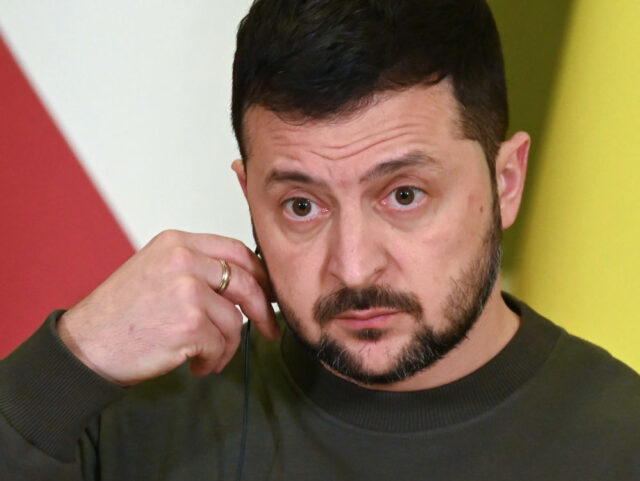A German research body that tracks donations to Ukraine says the value of pledges fell almost 90 per cent between Autumn 2022 and 2023, with levels dwindling since this Summer, around the time of Kyiv’s ‘Spring Offensive’.
Pledges of military and financial aid to Ukraine are now lower than they were before the renewed Russian invasion of Ukraine in February 2022, the Keil Institute says of its latest tranche of data published through its Ukraine Support Tracker programme. Noting donors have become “more hesitant in recent months”, Christoph Trebesch, a director at the Institute claimed “a further delay” to large aid programmes planned by the European Union and the United States of America would “significantly strengthen Putin’s position”.
Illustrating the degree to which aid was drying up for Ukraine, the report stated “Newly pledged aid hit a low between August and October 2023” and had fallen a remarkable 87 per cent compared to the same period in 2022. The value of promises to Ukraine is now the lowest since January 2022, the month before Russia renewed its invasion.
Zelensky ‘Not Satisfied’ With the Level of Western Weapon Donationshttps://t.co/ECProsobHt
— Breitbart London (@BreitbartLondon) December 2, 2023
The value of pledges is not the only factor, but also those making them. Per the Keil Institute, of 42 nations that have supplied Ukraine with military equipment and financial support since the start of the war, just 20 have given in the past three months, meaning the country is relying on an ever-smaller group of supporters.
Trebesch said: “Our figures confirm the impression that supporters have become more hesitant in recent months. Ukraine is increasingly dependent on a few core donors that continue to provide extensive support, such as Germany, the USA and the Nordic countries.”
The report does acknowledge, however, some issues with counting aid on a monthly pledge basis, in that some of the largest pledges are set to give support over the course of years, yet the pledge itself is all accounted to the month in which it was announced. Military support pledges in June of this year were so large, as new multi-year packages were announced, it was greater than every other month of 2023 combined, the Institute’s figures say.
Zelensky Tells Britain: ‘World Not Focussed’ on Ukraine Any More, ‘Divided’ by Middle East https://t.co/Nzs5lBfrSn pic.twitter.com/9GTZPlgMjc
— Breitbart London (@BreitbartLondon) November 16, 2023
The slump comes amid a global economic slowdown, being particularly felt in Europe and North America has inflation bites, and after Ukraine’s much-vaunted ‘Spring Offensive’ which despite being expensively prepared for with huge amounts of donated NATO equipment failed to produce the breakthrough hoped for.
Ukrainian President Volodymyr Zelensky has been vocal about the issue of dwindling gifts from the nations who have supported his effort to turn back the Russian invasion. Following the terror attack on Israel by Hamas in October Zelensky decried the dwindling levels of military support he was receiving as attention and supplies were diverted to Israel to help it in its own war against Islamism.
Speaking to the British Foreign Secretary Lord ‘Call me Dave’ Cameron in November, Zelensky said “the world is not focused” on Ukraine any more because focus had been divided by Hamas, and this month while acknowledging he shouldn’t “complain too much”, the President nevertheless reflected that he wasn’t getting “all the weapons we wanted” and that he was fighting “for attention” to be noticed after Western focus switched to Israel.
The World is Taking Ukraine For Granted and Expects Success Too Quickly, Protests Zelenskyhttps://t.co/g53Ory4wzf
— Breitbart London (@BreitbartLondon) November 1, 2023

COMMENTS
Please let us know if you're having issues with commenting.